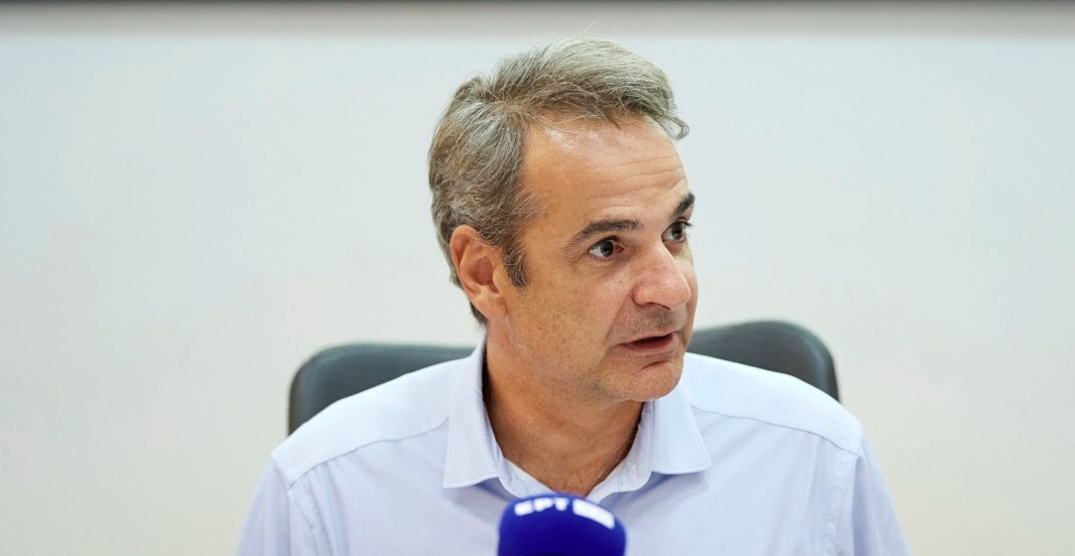On Monday morning, Kyriakos Mitsotakis visited Farkadona, one of the Thessaly regions affected by last year’s storm “Daniel.” At the town hall, he met with the Reconstruction Committee and later visited the 1st Elementary School. The meeting discussed the progress of restoration efforts and the timeline for the interventions currently underway as part of a larger €3 billion reconstruction plan for Thessaly.
The Prime Minister reviewed targeted state aid measures, including €182.7 million in first aid payments to over 50,500 beneficiaries and €237.7 million allocated to local government organizations, along with a special business support scheme for the municipalities of Palamas and Farkadona.
Mitsotakis praised the committee for its constructive approach to tackling the challenges after the disaster, emphasizing the importance of local involvement in the ambitious reconstruction plan. He also highlighted the close collaboration between the central government and local authorities, particularly in addressing the challenges posed by the recent swine fever outbreak, which had been managed effectively.
The Prime Minister also stressed the importance of long-term flood protection for Thessaly, with ongoing work on dams and flood defenses to safeguard the region. He noted that approximately €3 billion would be allocated to support and restoration efforts, including housing and infrastructure projects.

Later in the day, Mitsotakis visited the 1st Elementary School in Farkadona, where repair work is being carried out. He also toured the recently upgraded Land Registry Office in Larissa, where new digital technologies, including artificial intelligence, are being used to streamline processes and boost productivity.

The Prime Minister expressed satisfaction with the modernization of the Land Registry, which is expected to be completed by 2025. The implementation of AI tools has significantly improved the speed of legal checks, reducing tasks that previously took hours to just minutes. Mitsotakis also noted that this shift to digital processes is key to enhancing the efficiency of public services across Greece.

Ask me anything
Explore related questions





